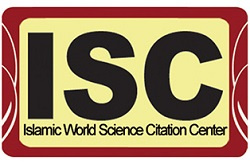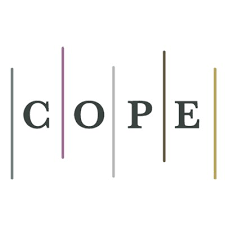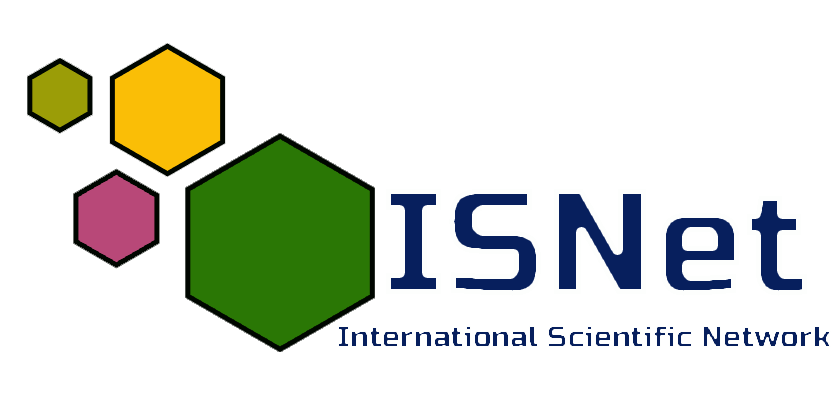Uncertainty analysis of tourism components in Tabriz
DOI:
https://doi.org/10.52547/ijimes.1.3.1DOR:
https://dorl.net/dor/20.1001.1.27832678.2021.1.3.1.5Keywords:
Tourism, Fuzzy System, Uncertainty, TabrizAbstract
Purpose: Predicting the profitability of the tourism industry is always faced with uncertainties. Especially in the last two years, when the global pandemic conditions have added to it. The purpose of this study is to investigate and analyze the uncertainties in the components affecting tourism in Tabriz.
Methodology: In addition to library studies, interviews with experts and professors in the field of tourism have been conducted in order to identify the components affecting tourism. Input factors in four areas of strategic planning, tourism potentials, regional conditions and infrastructure facilities and effective consequences on the problem in two economic areas and tourism consequences are categorized. Then, to explain the uncertainty of the obtained components, a fuzzy system is designed in MATLAB software. The system is based on an if-then rule approach with 84 rules that determine the relationship between input and output variables.
Findings: Our findings from the fuzzy system model show that following the current situation, the tourism outcome of Tabriz will be normal and its economic consequences for the city of Tabriz will be inappropriate due to its historical and economic history. Also, changes in regional conditions and urban potentials do not cause much change in the tourism situation. The results of the model show that simply paying attention to the plan and infrastructure without considering other conditions does not create a suitable situation for tourism. That is, plans and infrastructure should serve the better development of urban places and potentials and the proper bedding of regional conditions.
Originality/Value: Despite several years of capital and commercial center of Iran and high capabilities, Tabriz has not been able to achieve a good position in the Iranian tourism industry. Some of these factors are related to the uncertainty in plans and policies, etc. This article with this approach is an innovation in explaining the tourism conditions of Tabriz.
Downloads
References
Lowen, R. (2012). Fuzzy set theory: basic concepts, techniques and bibliography. Springer Science & Business Media.
Pękala, B. (2018). Uncertainty Data in Interval-Valued Fuzzy Set Theory: Properties, Algorithms and Applications (Vol. 367). Springer.
Cao, B. Y., & Zhong, Y. B. (Eds.). (2019). Fuzzy Sets and Operations Research (Vol. 872). Springer.
Uğur, N. G., & Akbıyık, A. (2020). Impacts of COVID-19 on global tourism industry: A cross-regional comparison. Tourism Management Perspectives, 36, 100744. https://doi.org/10.1016/j.tmp.2020.100744
Arbulú, I., Razumova, M., Rey-Maquieira, J., & Sastre, F. (2021). Measuring risks and vulnerability of tourism to the COVID-19 crisis in the context of extreme uncertainty: The case of the Balearic Islands. Tourism Management Perspectives, 39, 100857. https://doi.org/10.1016/j.tmp.2021.100857
Mai, T., & Smith, C. (2018). Scenario-based planning for tourism development using system dynamic modelling: A case study of Cat Ba Island, Vietnam. Tourism Management, 68, 336-354. https://doi.org/10.1016/j.tourman.2018.04.005
Atsalakis, G. S., Atsalaki, I. G., & Zopounidis, C. (2018). Forecasting the success of a new tourism service by a neuro-fuzzy technique. European Journal of Operational Research, 268(2), 716-727. https://doi.org/10.1016/j.ejor.2018.01.044
Andria, J., di Tollo, G., & Pesenti, R. (2019). A fuzzy evaluation of tourism sustainability. In Business and consumer analytics: New ideas (pp. 911-932). Springer, Cham, DOI: 10.1007/978-3-030-06222-4_24.
Ming, Y., & Liu, N. (2021). Political uncertainty in the tourism industry: Evidence from China’s anti-corruption campaign. Current Issues in Tourism, 24(18), 2573-2587. https://doi.org/10.1080/13683500.2020.1852195
He, J., Huang, Z., Mishra, A. R., & Alrasheedi, M. (2021). Developing a new framework for conceptualizing the emerging sustainable community-based tourism using an extended interval-valued Pythagorean fuzzy SWARA-MULTIMOORA. Technological Forecasting and Social Change, 171, 120955. https://doi.org/10.1016/j.techfore.2021.120955
Kallmuenzer, A., Baptista, R., Kraus, S., Ribeiro, A. S., Cheng, C. F., & Westhead, P. (2021). Entrepreneurs' human capital resources and tourism firm sales growth: A fuzzy-set qualitative comparative analysis. Tourism Management Perspectives, 38, 100801. https://doi.org/10.1016/j.tmp.2021.100801
Hosseini, S. M., Paydar, M. M., & Hajiaghaei-Keshteli, M. (2021). Recovery solutions for ecotourism centers during the Covid-19 pandemic: Utilizing Fuzzy DEMATEL and Fuzzy VIKOR methods. Expert Systems with Applications, 185, 115594, https://doi.org/10.1016/j.eswa.2021.115594
Morteza, Z., Reza, F. M., Seddiq, M. M., Sharareh, P., & Jamal, G. (2016). Selection of the optimal tourism site using the ANP and fuzzy TOPSIS in the framework of Integrated Coastal Zone Management: A case of Qeshm Island. Ocean & coastal management, 130, 179-187, https://doi.org/10.1016/j.ocecoaman.2016.06.012
Parviznejad, P. S., & Akhavan, A. N. (2021). Impact of the Tourism Industry Scenarios in Urban Economy:(Case Study Tabriz). International Journal of Innovation in Management, Economics and Social Sciences, 1(1), 1-15, https://doi.org/10.52547/ijimes.1.1.1
Nahaei, V. S., Novin, M. H., & Khaligh, M. A. (2021). Fuzzy clustering of investment projects in Tabriz Municipality Waste Management Organization with ecological approach. International Journal of Innovation in Management, Economics and Social Sciences, 1(2), 28-42. https://doi.org/10.52547/ijimes.1.2.28
Nahaei, V. S., & Bahrami, M. (2021). Uncertainty analysis of business components in Iran with fuzzy systems: By comparing hypermarkets and Net markets. International Journal of Innovation in Management, Economics and Social Sciences, 1(1), 45-55. https://doi.org/10.52547/ijimes.1.1.45
Czabanski, R., Jezewski, M., & Leski, J. (2017). Introduction to fuzzy systems. In Theory and Applications of Ordered Fuzzy Numbers (pp. 23-43). Springer, Cham.
Prokopowicz, P., Czerniak, J., Mikołajewski, D., Apiecionek, Ł., & Ślȩzak, D. (2017). Theory and Applications of Ordered Fuzzy Numbers: A Tribute to Professor Witold Kosiński. Springer Nature.
Ghahremani Nahr, J. (2020). Improvement the efficiency and efficiency of the closed loop supply chain: Whale optimization algorithm and novel priority-based encoding approach. Journal of Decisions and Operations Research, 4(4), 299-315. DOI: 10.22105/dmor.2020.206930.1132
Published
How to Cite
Issue
Section
License
Copyright (c) 2021 Paria Samadi Parviznejad, Mohsen Bahrami

This work is licensed under a Creative Commons Attribution 4.0 International License.












